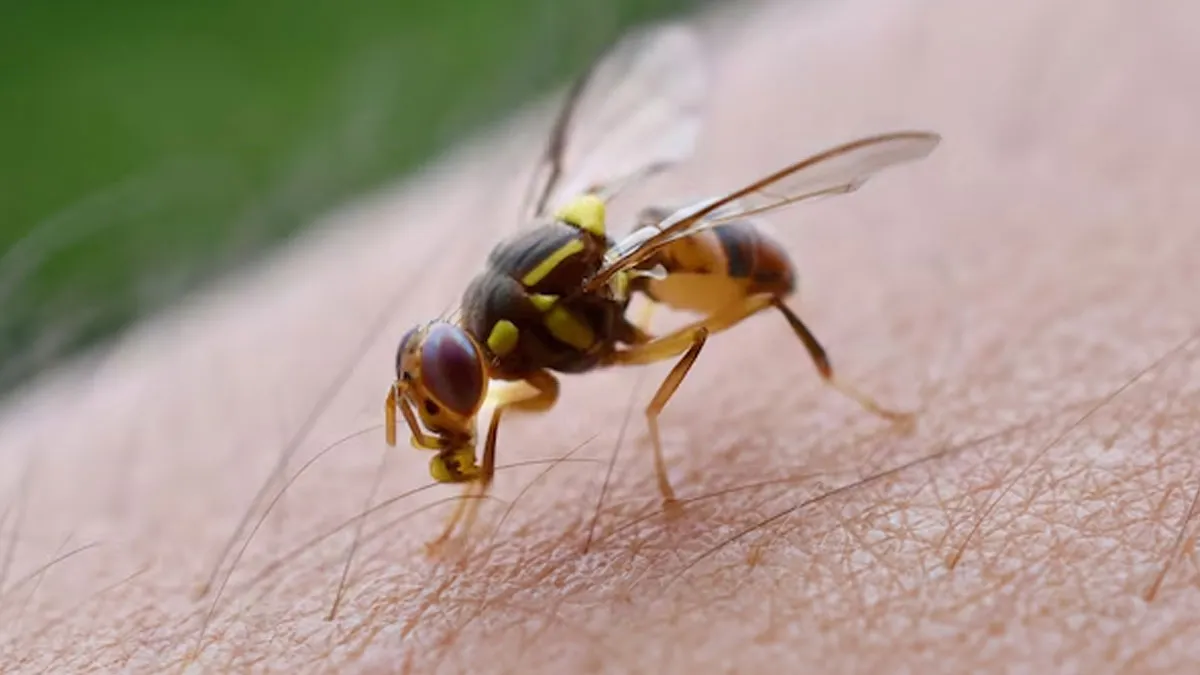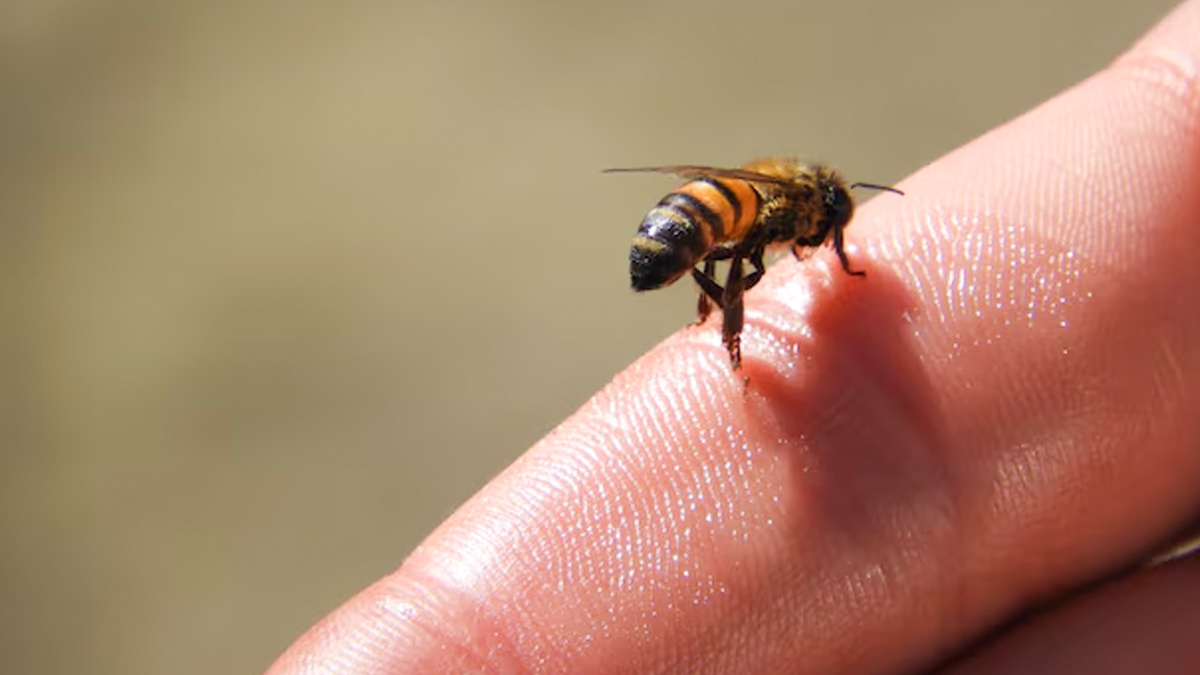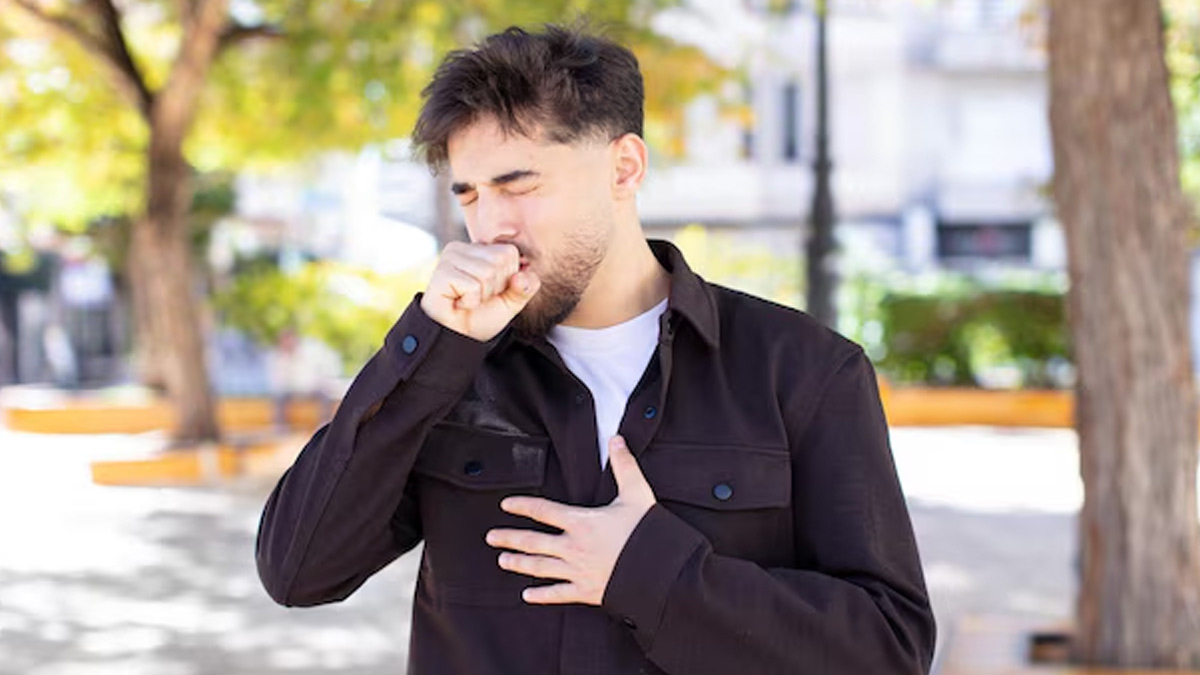
Indian actress Karisma Kapoor's ex-husband and businessman Sunjay Kapur tragically passed away on June 12 during a polo match in London, United Kingdom. While the cause of death was a heart attack (confirmed by his company), reports suggest that a bee flew into his mouth during the match, leading to windpipe blockage, which subsequently caused a heart attack.
Table of Content:-
It may seem surprising that something as tiny as a bee could trigger such a fatal reaction. However, this tragic incident highlights the fact that bee stings can be far more dangerous than we often realise, especially when they lead to severe allergic reactions or block vital airways.
In an interaction with the OnlyMyHealth team, Dr Sunil Jain, Consultant and Head - Emergency Department, Jaslok Hospital & Research Centre, Mumbai, discusses the risks associated with a bee sting and shares necessary first-aid steps to take.
Why You Shouldn’t Take A Bee Sting Lightly

While most bee stings cause only temporary pain and swelling, the real danger lies in the possibility of a severe allergic reaction known as anaphylaxis.
According to Dr Jain, anaphylaxis is a life-threatening emergency that typically develops within minutes of a sting. Key symptoms include:
- Difficulty breathing or wheezing
- Swelling of the lips, tongue, throat, or face
- Rapid heartbeat or a weak pulse
- Dizziness, fainting, or confusion
- Nausea, vomiting, or stomach cramps
- Widespread rash or hives
If not treated immediately, usually with an injection of epinephrine (adrenaline), anaphylaxis can be fatal. This is why people with known insect sting allergies are often advised to carry an epinephrine auto-injector (EpiPen) and seek emergency care after a sting.
Mild Reaction Vs. Severe Reaction

Most bee stings cause mild reactions, which cause discomfort but aren't usually dangerous. These symptoms are usually limited to the area around the sting and may include:
- Pain, redness, and swelling at the sting site
- Itching or a warm sensation around the area
- Localised swelling that may gradually increase over a few hours
On the other hand, a serious allergic reaction, or anaphylaxis, is a medical emergency. While it often develops within minutes of the sting, it can sometimes be delayed by an hour or more. Warning signs include:
- Hives, widespread rash, or itching beyond the sting site
- Swelling of the lips, tongue, face, or throat
- Flushed or unusually pale skin
- Shortness of breath, wheezing, or chest tightness
- A feeling of the throat closing or difficulty swallowing
- Rapid heart rate or a sudden drop in blood pressure (faintness or dizziness)
- Nausea, vomiting, or abdominal cramps
- Loss of consciousness
Who Is At Risk Of Severe Reactions?
According to Dr Jain, some people are more at risk of serious complications from bee stings and should take extra precautions. These include:
People with a known bee sting allergy: Especially those who have experienced a systemic reaction in the past. Each new sting increases the risk of another reaction.
Individuals with other allergies or asthma: Those with uncontrolled asthma are particularly at risk, as their respiratory symptoms can worsen significantly during a reaction. They may also have an overactive immune response, making them more prone to severe allergic reactions.
People with frequent exposure to bees: gardeners, farmers, landscapers, and hikers are at higher risk due to their regular presence in bee-prone environments.
Children and older adults: While children often experience only local reactions, if allergic, their symptoms can escalate quickly. Older adults, on the other hand, are more likely to suffer systemic complications, especially after multiple stings, and may have underlying health issues that increase the risk.
Also Read: Troubled With Bee Sting? Here're 6 Home Remedies To Treat It
First-Aid Steps To Take After Getting Stung By A Bee

Some of the key steps to take after a bee sting include:
- Removing the stinger quickly in order to stop more toxic substances from entering the body. To remove the stinger, use a flat object like a credit card to scrape the stinger out. Do not use tweezers to pull it out because pinching the stinger could release more toxic substances.
- After the stinger is removed, wash the site of the sting with soap and water to prevent infection.
- To reduce the swelling, use a cold pack or ice wrapped in cloth on the site of the sting for 10–15 minutes at a time.
- Take antihistamine drugs to relieve itching or swelling.
- Watch for signs of serious allergic or anaphylactic reactions like worsening swelling, hives, difficulty breathing, or dizziness.
Prevention Tips
Dr Jain shares essential precautions for individuals at risk of severe allergic reactions:
- Always carry emergency medication like an epinephrine auto-injector (EpiPen) and antihistamines.
- Get allergy testing and consider immunotherapy.
- Stay away from flowering plants, bee hives, or areas where contact with insects is likely.
- Wear light-coloured clothing and avoid bright colours or floral prints, which attract bees and wasps.
- Keep food and drinks covered when outdoors.
- If a bee approaches, do not swat it; stay calm and move away slowly.
- Let friends, family, and coworkers know about your allergy.
Conclusion
When it comes to a bee sting, we usually deal with the discomfort and ignore it. However, for someone with an insect allergy, being stung by a bee can be life-threatening. That is why it is so important to know the signs, act quickly, and always be prepared. As Dr Jain reminds us, being aware of your body, keeping emergency medication on hand, and letting the people around you know what to do can make all the difference and even save a life.
Also watch this video
How we keep this article up to date:
We work with experts and keep a close eye on the latest in health and wellness. Whenever there is a new research or helpful information, we update our articles with accurate and useful advice.
Current Version
